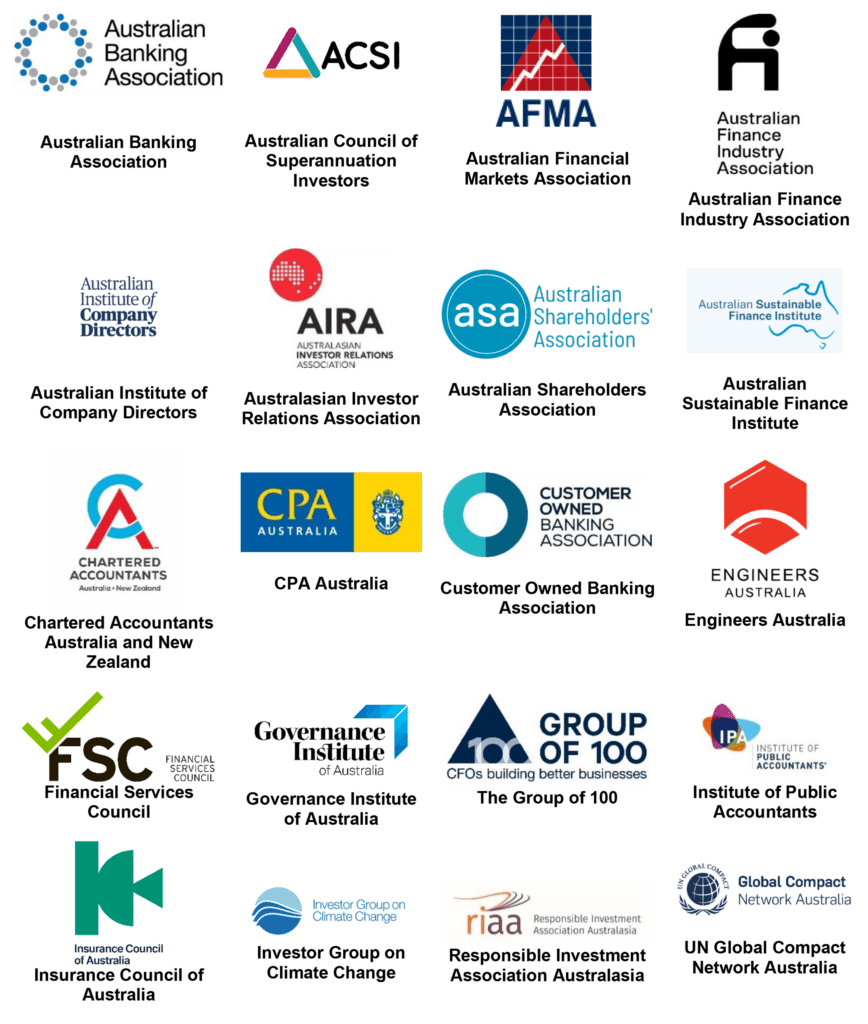Supporting the climate transition

1 August 2022
Twenty of Australia’s most influential business and finance peak bodies have come to an unprecedented consensus on the need for sustainability reporting including action on climate risk through a new reporting regime that aims to set a global baseline.
The group has welcomed the International Sustainability Standards Board (ISSB) draft sustainability standards in a joint submission which collectively represents the voice of 20 peak professional, industry and investor bodies in Australia who came together to prepare the joint response to the two exposure drafts.
The peak bodies together represent more than 400 companies, approximately 300 investors with US$33 trillion assets under management, and 500,000 business and finance professionals.
The group considers clear, transparent, comprehensive and comparable disclosure of sustainability-related information to be part of the foundation of a well-functioning global financial system.
The group supports a global approach to the development of sustainability disclosure standards and for the ISSB to be the global body to issue these standards.
The overarching goal should be a globally consistent, comparable, reliable, and verifiable corporate reporting system to provide all stakeholders with a clear and accurate picture of an organisation’s ability to create sustainable value over time.
It is critical that the ISSB and other jurisdictions developing sustainability standards take a coordinated approach to avoid regulatory and standard setting fragmentation by aligning key definitions, concepts, terminologies, and metrics on which disclosure requirements are built.
Collaboration and coordination between sustainability disclosure initiatives and financial accounting standard-setting is important. The ISSB is best placed to achieve this given its connection to the International Accounting Standards Board (IASB).
Climate represents a first order risk to the Australian economy, the financial system and investors. The group supports the Paris Agreement and its objective to take into account the needs of a just transition while achieving a net zero emissions economy and resilient Australia.
To avoid large-scale financial risks from a disorderly transition to net zero emissions and the physical impacts of climate change, there must be clear and comparable disclosure of sustainability-related and in particular climate related information.
The peak bodies each look forward to working with the Australian Government and key national and international stakeholders as the climate change reporting regime is finalised and phased in.

Latest news
E&OEPodcast InterviewThe Savings Tip Jar18 February 2026. Topics: Mortgage refinancing, savings accounts. Dominic Beattie (Host): Welcome to this week’s Dollar Dialog, and today we’re talking refinancing, with new data dropping from the ABS last week, showing that a record 640,000 Australian mortgages were refinanced through 2025, which is up 20% on the previous year. So,… Read more »
Over 640 000 homeowners refinanced their mortgage last year, according to new data released today by the Australian Bureau of Statistics. New lending indicators data shows 640 137 mortgages were refinanced throughout 2025, a 20 per cent jump from the previous year as more borrowers than ever before renegotiated or switched their home loans. ABA… Read more »
E&OERadio InterviewABC Radio Canberra9 February 2026. Topics: Romance scams; Scam Prevention Framework Emma Bickley (Host): You’re listening to afternoons on ABC Radio Canberra. I’m Emma Bickley, and my guest today is Simon Birmingham. He’s the CEO of the Australian Banking Association, and in the lead up to Valentine’s Day, they’re warning you that romance scams… Read more »
